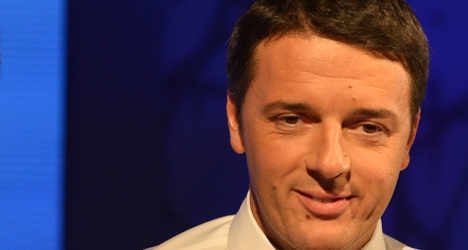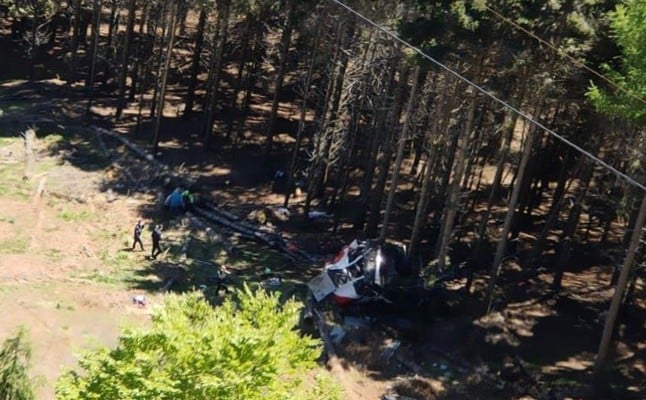Earlier this week, Matteo Renzi confidently announced that Italians earning less than €1,500 a month would receive an additional €1,000 a year through tax cuts, as part of a package totalling €10 billion.
The move is part of his ambitious reform agenda and came less than a month after he was sworn in as prime minister. The plan also includes a ten percent reduction in a payroll tax paid by employers.
Renzi said his measures would be partly financed by cuts in state spending and ruled out tax rises for wealthier citizens, with the exception of a hike in capital gains tax from which government bonds will be exempted.
He also conceded that some of the cuts would have to come from extra borrowing, a move that will no doubt ruffle a few feathers in Brussels.
"For years citizens have seen prices and bills go up while their salaries have been frozen," he said. "For the first time, this government is putting money in the pockets of people living in the real world, instead of politicians."
But as Italy grapples with an unemployment rate edging towards 13 percent and €2 trillion in public debt, commentators have cast doubt that the plans will revive dynamism.
Giorgio Squinzi, the head of Confindustria, Italy’s main business lobby, said real change would only come if the government reduced “the wedge of taxes” and labour costs paid by businesses, so that they can improve competitiveness and create jobs.
"Without companies, there is no growth, there is no work, there is no Italy," he wrote in Italy's Corriere della Sera newspaper.
“It would be interesting to ask Italians if they want a job or a few extra euros in their pocket.”
An editorial entitled ‘Renzi’s medicine will not cure Italy’, published in the Financial Times on Thursday, said that while cutting taxes for low earners “makes good political sense” it will do little to solve Italy’s problems.
“As Mr Renzi shamelessly admitted, this should boost his Democratic party in the elections for the European parliament in May,” the columnist wrote.
“But it will do little to solve Italy’s competitiveness crisis."
The editorlal also questioned how Renzi planned to spend the money he intended to borrow.
"Economists believe that about one-third of the extra income will be spent on imports. Some may be saved. It would have been better to concentrate the limited firepower to help businesses, cutting the taxes they pay more deeply. This would allow them to price their goods abroad more cheaply and hire more workers.”
The columnist went on to say that Renzi must “find other ways to make Italy more competitive”, including reforming a labour market “which gives excessive protection to powerful insiders at the expense of the young.”
While the 39-year-old prime minister announced changes to rules governing apprenticeships and short-term contracts, making it easier for companies to hire, he “should go further, for example increasing the flexibility companies have to set their own wages rather than having to rely on countrywide agreements,” the columnist added.
Such a move would make it easier for Italy’s EU allies to agree to extra borrowing and “would also show that Mr Renzi cares about fixing Italy’s economy as much as winning votes.”
Don't miss a story about Italy – Join us on Facebook and Twitter.





 Please whitelist us to continue reading.
Please whitelist us to continue reading.
Member comments